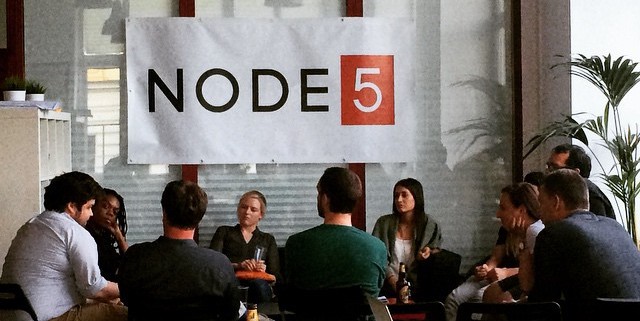5 Tips to Get the Most out of Your Mentors
As we welcome our Batch 7 startups for their month of intensive mentoring with StartupYard’s community of over 100 mentors, we start as always with a focus on two things: product positioning, and mentor relationships.
Product positioning, as you can see from our piece on that above, is essential to building the communication tools a team needs to communicate what they’re doing, and get the right advice at the right time. But being able to get the most out of your mentors is equally as important. Here are a few tips for that:
Get the Most out of Your Mentors:
Focus on Clarity, not Accuracy
One of the hardest things for founders to do early on, is to start speaking in the language of an evangelist for their ideas and work. It pays to keep in mind the difference between “clarity” and “accuracy.” A mentoring session can go fantastically wrong if the team starts leading the mentor down the garden path of fine-grained technicalities that distract, rather than enhance, the big picture.

Founders are likely, for example, to describe their competitive advantages in technical terms, rather than strategic ones. They are more likely to provide more detailed descriptions of their technology and its features, rather than talking about what bigger problems they solve, and what customer outcomes will look like.
Not only does this leave less for mentors to weigh-in on, but it also puts much of the conversation on the founder’s side of the table, keeping it on subjects where they are experts. It’s important to be clear about what you do, but to moderate the information you share to only that which is relevant to the mentor. Don’t defeat the mentor in detail; instead focus on helping them to understand what you do in their own terms.
Every Meeting is a Sales Opportunity
In a sense, mentors are a kind of customer. Either they’re going to buy into your idea and want to help you in whatever way they can, or they aren’t. Your job is to sell them on your potential, and to keep them on your side, helping you accomplish your goals.
Startups sometimes treat mentorship as some sort of an audition: “tell me what you can do for me”. Mentors sometimes do this too, and it’s generally not very useful. The more constructive angle is to spend the first few minutes of a meeting working to get the mentor into your thinking, and help them see the logic and opportunity in what you’re doing. A mentor that feels comfortable with your ideas and believes in them will be much more ready to help.
Mentors do become customers, but more often they become references for potential customers. We see this time and again. A mentor isn’t a customer, but knows the perfect customer, and a friendly recommendation from a trusted colleague is worth many times more than the best marketing in the world.
Do You Know Someone Who…
Mentors need help finding out what you need. Mentoring is partly about gathering advice, and partly about gathering contacts. This is a consistent point of failure for startups at StartupYard, and at every other accelerator where I’ve mentored personally.
Startups usually love the productive work of getting actionable advice, but they shy away from asking to tap into a mentor’s network. And yet this is a huge part of a mentor’s value. The advice you can get from anyone with enough experience, but each person’s network of connections is unique, and has its own strengths to consider. Don’t waste that opportunity to find out how a mentor can connect you with people you need to meet.
For the love of God, Follow Up
It never fails that when I run into our mentors or see them at our events, they will ask me about startups that they wish had stayed in contact with them. It’s usually something like: “Hey, how is [Startup] doing? I haven’t heard from them. I offered to get them in touch with [Important Person], and they didn’t follow up.”
This is prototypical, particularly among newer entrepreneurs. Failing to leverage offers from mentors is understandable, but it needs to be a strong point of focus. A mentor who promises something, and then doesn’t reach out, is not a flake. Usually, the mentor doesn’t really know how important the contact is to you, and doesn’t want to force you to waste time talking to people you don’t need to talk to.
And once a mentor makes an offer that is not followed up on, he or she is much less likely to ever offer such help again. Making mentors feel valued by following up on their offers, even if it just to be polite, leaves the door open to more constructive future offers.
Of any type of mistake startups make in mentoring at StartupYard, failing to follow up with mentors is the least forgivable. At best, it’s a symptom of shyness, and at worst it’s lazy and disrespectful to mentors you may well need in the future.
Smile
Simple, but disproportionately important. You need mentors to like you. You need mentors to want to introduce you to their colleagues, or to think of you when an idea or an opportunity strikes. You want them to feel like they can give you a call; that they aren’t bothering you, and that you like them.
It’s simple, but still, it’s hard to do consistently. Projecting your enthusiasm is a skill that entrepreneurs have to learn, and for that, I recommend one of my favorite books, the legendary How to Win Friends and Influence People, by Dale Carnegie.
Spoilers: it’s not really that hard. But it takes more than superficial manners. It takes focusing on how you view others, so that you treat them better and consistently focus on their needs and their interests. If you can do that, with a smile, you can build a productive relationship with almost anyone.




